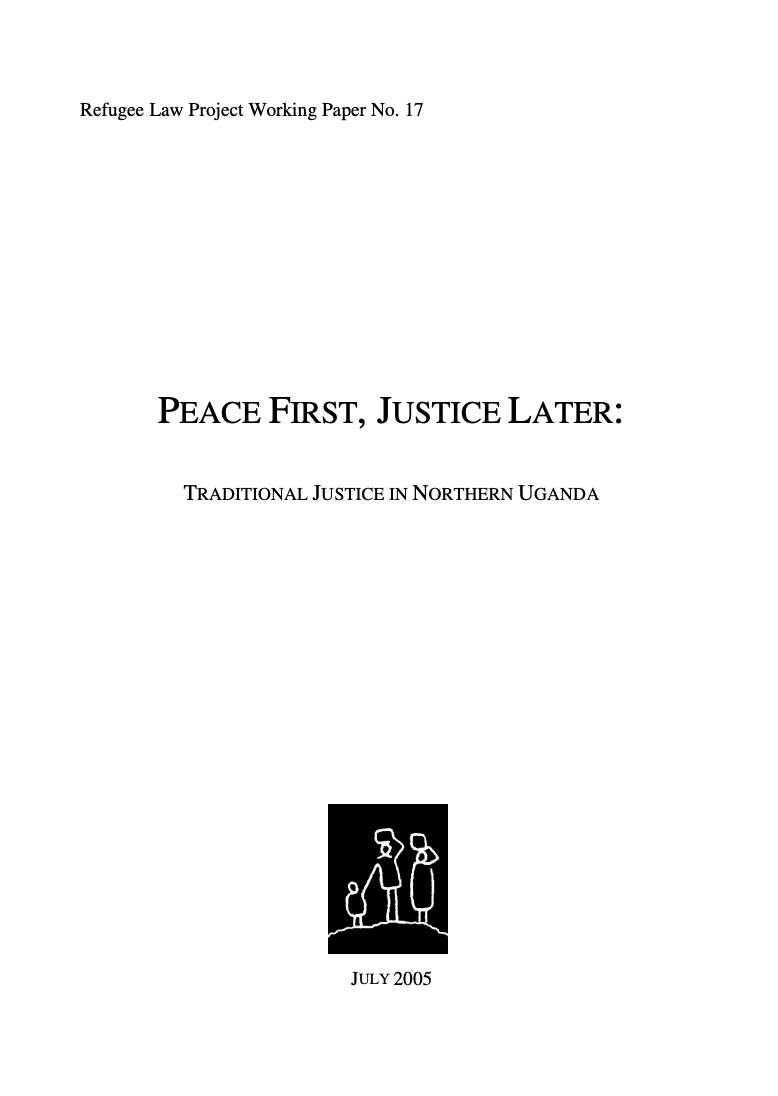The following report presents a situation analysis of the condition of internally displaced persons (IDPs) living in Adjumani district. Located in northern Uganda, Adjumani district has suffered from the effects of sporadic violence and armed conflict for several decades.
As a result, forced displacement of both refugees and IDPs, though under-recognised, has been a common phenomenon in this region. In 2006, incursions into the district by the Lord’s Resistance Army (LRA) caused further displacement.
Working Papers
Our working paper series presents in-depth analyses of specific situations that have been investigated or recorded by RLP research trips. These working papers attempt to maintain a careful balance by being academically rigorous yet highly accessible to non-specialists, bearing in mind the difficulties and risks of conducting research in often volatile regions.
The following report seeks to engage in the current debate on issues of post-conflict reconstruction and appropriate mechanisms of justice within northern Uganda. It begins by outlining both the goals of any reconstruction phase, as well as defining the two words, peace and justice. It then argues that there is a clear order in which they should happen:
This paper examines the social, economic, and political situation of urban refugees in Kampala. In Uganda, refugees are expected to become self-reliant, and refugees who live in refugee settlements are given initial assistance to help them achieve this objective. The majority of refugees who reside outside of settlements, however, are not eligible for such assistance.
The following report analyses the process of amnesty as characterised in Uganda’s Amnesty Act 2000. It does so primarily from the perspective of those who have experienced the process first hand – either as combatants who have come out of the bush and received legal and social pardon for their actions, or as community members who have suffered, both directly and indirectly, from the brutal impact of civil conflicts.
This paper examines the Government of Uganda’s (GoU) local settlement policy which requires refugees to live in formal camps, and examines its implications for refugees’ livelihoods and their enjoyment of their legal rights in Uganda.Based on field research in Arua and Moyo districts, findings below explore the relative positions of refugees residing in settlements as well as those who have left or avoided the settlement system altogether
Against the contextual backdrop of conflict and displacement in western Uganda and neighbouring Democratic Republic of Congo (DRC), this report highlights child protection issues in Ntoroko County, Bundibugyo District. Using participatory, qualitative methods, a team of six researchers gathered data from refugee and national adults and children in Kanara, Rwebisengo and Karagutu sub-counties.
- NEGOTIATING PEACE: Resolution of Conflicts in Uganda's West Nile Region
- BEHIND THE VIOLENCE: Causes, Consequences and the Search for Solutions to the War in Northern Uganda
- DISPLACEMENT IN BUNDIBUGYO DISTRICT: A Situation Analysis
- EDUCATION OF REFUGEES IN UGANDA: Relationships between Setting and Access









